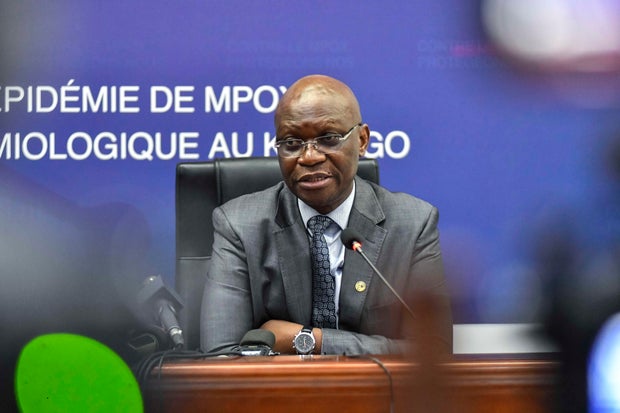
Johannesburg — For weeks, it was simply nicknamed “Disease X.” But the mysterious flu-like illness who killed more than 143 people – mainly women and young children – in the Democratic Republic of Congo has finally been identified.
“The mystery is finally solved,” the Congolese Ministry of Health said in a statement on Tuesday. “This is a case of serious malaria in the form of a respiratory illness.”
The health agency said malnutrition in the hardest-hit region had weakened the local population’s immunity, making them more vulnerable to the disease. People who have contracted malaria have experienced symptoms such as headache, fever, cough and body aches.
Congo’s health minister had told reporters that the country was on “high alert” for the spread of the previously unidentified disease, and health officials told CBS News in early December that the move away from the epicenter of the epidemic and the lack of diagnosis made things difficult. launch a concerted response.
Samy Ntumba Correspondent/AP
At least 592 cases were reported after the Congolese Ministry of Health first raised the alert on October 29. The ministry said the disease had a mortality rate of 6.25%. More than half of the recorded deaths were among children under five who were severely malnourished when they contracted the disease, according to the World Health Organization.
At a press conference on December 10, WHO Director-General Tedros Adhanom Ghebreyesus said that 10 of 12 samples taken from patients suffering from the mysterious illness had tested positive for malaria, but he added that they were still testing for other diseases at the time.
The Congolese government sent a rapid response team to Kwango province, 700 kilometers southeast of the capital Kinshasa, made up of epidemiologists and other medical experts. Their objective was to identify the disease and put in place an appropriate response. Government authorities had earlier warned local people to avoid touching those infected with the disease or the bodies of deceased people.
Congo has suffered from numerous epidemics in recent years, including typhoid, malaria and anemia. The country is also grappling with a MPOX epidemicwith more than 47,000 suspected cases and more than 1,000 suspected deaths due to the disease, according to the WHO.
Antimalaria drugs supplied by WHO were being distributed to local health centers in Congo, and WHO officials said more medical supplies were expected to arrive in the country on Wednesday.
It’s the rainy season in Congo, which often sees an increase in malaria cases, and which will certainly complicate the treatment of those most at risk.




